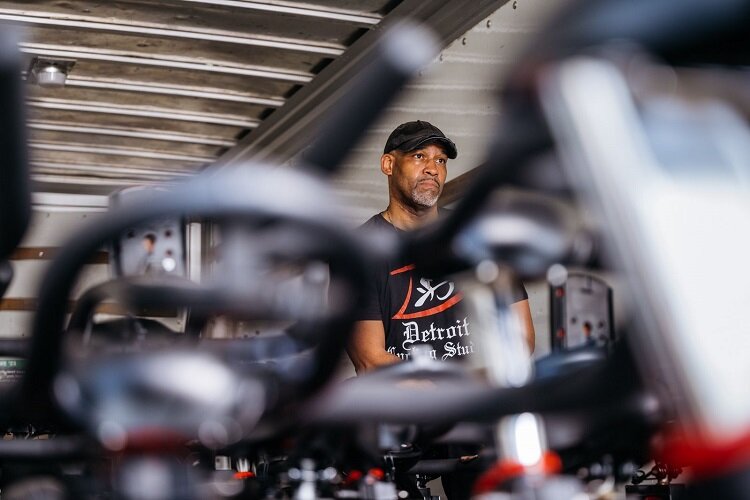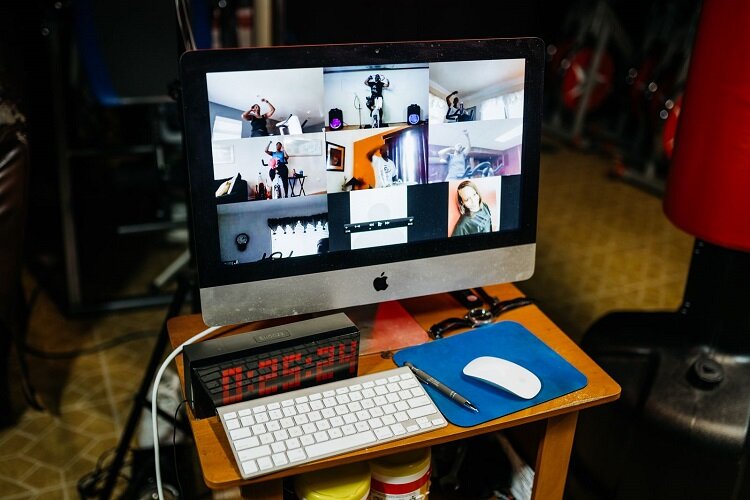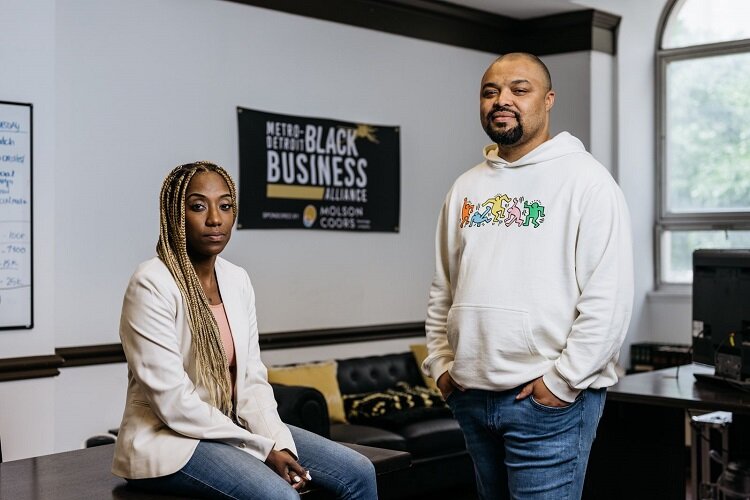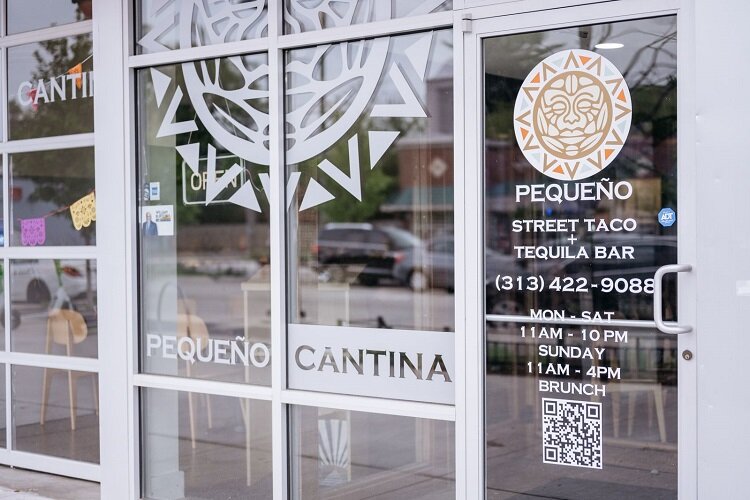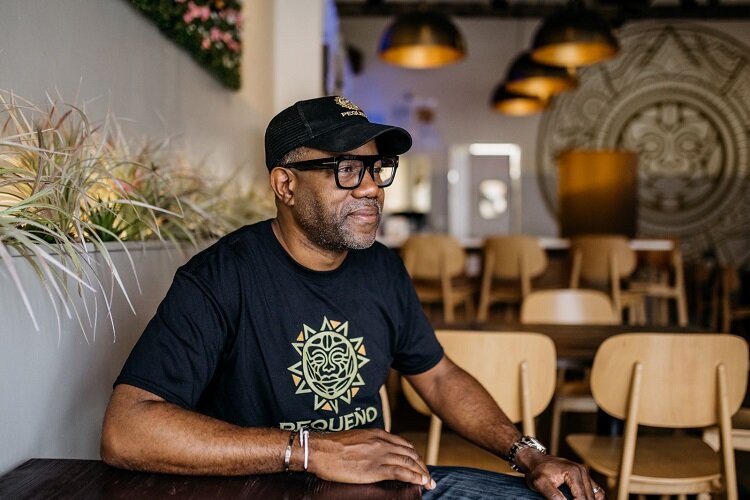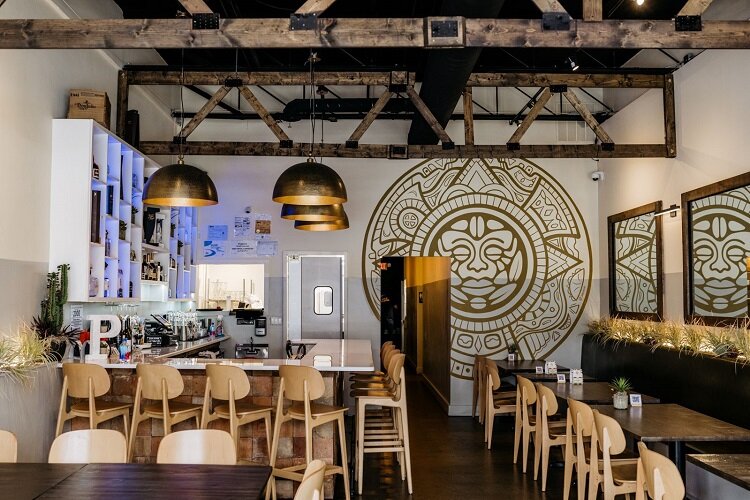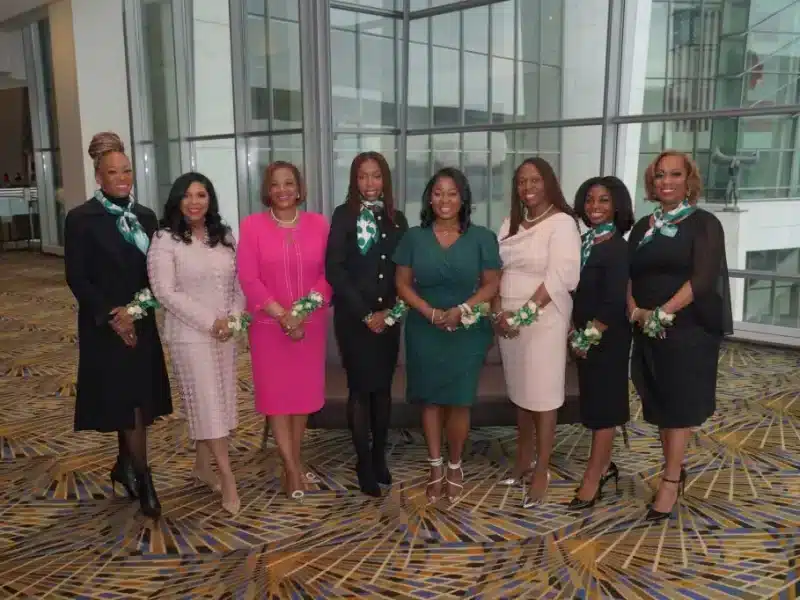Partner Partner Content These Metro Detroit resources can help Black entrepreneurs gain better access to capital
Black-owned businesses often face hurdles accessing capital. Here are some organizations and programs that may be able to help.
Samantha Cheatham quit her job in the banking industry a few years back to spend more time on her passion for wig making. These days she spends a lot of her time creating hair pieces for women suffering from hair loss, as well as those who like

quick and easy hairstyles that they can change on the fly.
While Cheatham has long been interested in hair extensions, the wigs she made were originally just intended for her own use. As she got more experienced, however, people began taking notice and asking for commissions.
“It wasn’t until I graduated high school and started working in corporate America that people started showing interest in the wigs I was wearing,” Cheatham says. “I just started making them for whoever asked. It was therapeutic and I really loved it. And because I didn’t see myself working in corporate America for long, I decided to make it a business.”
In 2020, Cheatham launched her own company, Certified Textures.Today the Southfield-based shop offers customized wigs for individuals as well as bulk wig orders for salons.
Getting her business off the ground was a gradual thing that involved a lot of scrimping and saving. In the beginning, she relied on her own personal savings, setting aside money to purchase inventory or advertise on social media. Over time, though, she adopted a preorder system, where clients would assist in covering production costs. That helped her get where she is today, but she’s still looking for more capital to expand her operation. And, even with her banking experience, that’s proved challenging.
“When you speak to someone about a loan, they run your credit and tell you if you’re eligible or not. They don’t help you with fixing your credit. They don’t help you with documents,” says Cheatham. “And since the pandemic [started], it has gotten a little harder for Black business owners, especially, to find funding.”
A ‘Black Chamber of Commerce’
Looking around for ways to gain better access to capital, Cheatham heard about a group called Metro-Detroit Black Business Alliance (MDBBA), which she believes can help her in her efforts to expand her operations.
The alliance is focused on serving Black-owned businesses in Wayne, Oakland, and Macomb Counties. It was co-founded by Charity Dean and Kai Bowman, who both run their own consulting firms and have experience working for the city of Detroit. They launched MDBBA last year with the support of a $1 million commitment from TCF Bank (which, following a merger, is now known as Huntington Bank). Since getting off the ground last March, the alliance has grown to roughly 430 members based in a variety of different industries.
“In essence we created a Black Chamber of Commerce,” says Bowman, who now serves as MDBBA’s chief operating officer. “What we have done over the last year is create programs and advocate for policies that will support and help sustain Black entrepreneurs in the region.”
The alliance is dedicated to reducing the racial wealth gap in Southeast Michigan through its support of Black-owned businesses. According to the Brookings Institute, the median worth of the wealth for a typical Black family in the United States is just $17,150, based on 2016 figures, compared to $171,000 for the typical white family. That’s a difference of nearly ten times between the two groups, and similar disparities persist across various income levels.
For Black entrepreneurs, the financial complication this causes is compounded by the difficulties they face getting access to capital from lenders and other institutions. In addition to the historical legacy of racist banking practices, some of these business owners may also have to deal with challenges related to paperwork, taxes, and credit scores. Beyond that, Bowman says there is also an issue when it comes to the transparency of guidelines that lending institutions use to make their decisions.
“One of the barriers that we don’t often talk about—and which makes our program a little different–is that banks don’t necessarily disclose their underwriting guidelines,” he says. “So as an entrepreneur, or even someone trying to get a home loan, you don’t necessarily know what the criteria is that you’re being graded on. So you don’t know how the game is structured.”
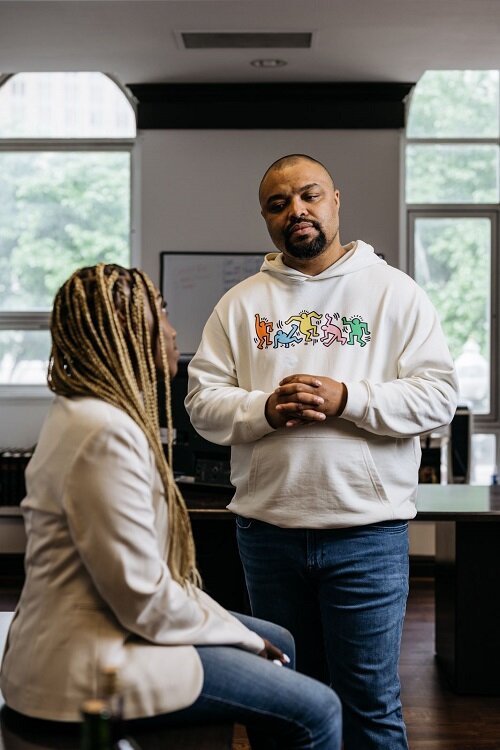
In order to address these challenges, the MDBBA has allied itself with several financial institutions—including Huntington Bank, First Independence Bank, Invest Detroit, CDC Small Business Finance, Detroit Development Fund, and ProsperUS Detroit—and developed programming to support Black business owners.
Its Capital Connect initiative is a 12-week cohort-based program that prepares Black businesses for the process of applying for loans and other forms of capital funding. Members of each cohort spend four weeks on business plan development, two weeks on financial projects, and two weeks on pitch development. Then after those first eight weeks they are eventually brought together with the alliance’s various funding partners, which include banks, CDFIs, and grant-giving organizations. MDBBA staff work with the businesses to help them understand underwriting guidelines and steer them to the funding partners that make the most sense for them. Of the ten participants in the first Capital Connect cohort, seven were successfully connected with funders and collectively brought in $1.85 million in direct funding to help scale up their businesses.
The alliance also offers a Biz Wiz program, which Bowman refers to as a “Geek Squad for Black Businesses.” It provides general support for Black entrepreneurs, including help navigating municipal processes like getting assistance with a business license and other certifications. For those not in the Capital Connect program, MDBBA also has capital navigation resources to help connect businesses with funders. The organization also publishes a Black Business directory, called the Hastings Street Index, on its website and offers a downtown Detroit co-working space with a variety of resources to its members.
Cheatham is part of MDBBA’s current Capital Connect cohort, which has grown this year to 18 participants. She’s hopeful her experience will ultimately assist her in expanding her wig-making operation.
“From a financial standpoint, it has helped me a lot with understanding how a business should be run,” she says. “We’re still in the beginning phases of doing the business plan. But speaking with the previous cohorts who were able to get funding, I feel really really confident that they are going to be able to get me the funds I need.”.
Restaurant entrepreneur Frank Blackman is also a member of the alliance and a strong advocate for its work. A graduate of Oakland County Community College’s culinary arts program, he served as the executive chef at the London Chophouse in the 1990s. Today Blackman owns several restaurants, including Pequeño Cantina in Detroit’s Live6 neighborhood, as well as the B&H Consulting Group.
He credits Bowman with helping him secure the financing for a new cigar bar and restaurant operation at the B. Siegel building in Detroit’s Live6 district. And based on his experiences with the alliance, Blackman believes its unique model has a lot to offer local entrepreneurs.
“MDBBA’s work is very important, especially for new business owners who have never opened a business before,” he says. “And for me it’s just getting info in real time that relates to business opportunities in my city.”
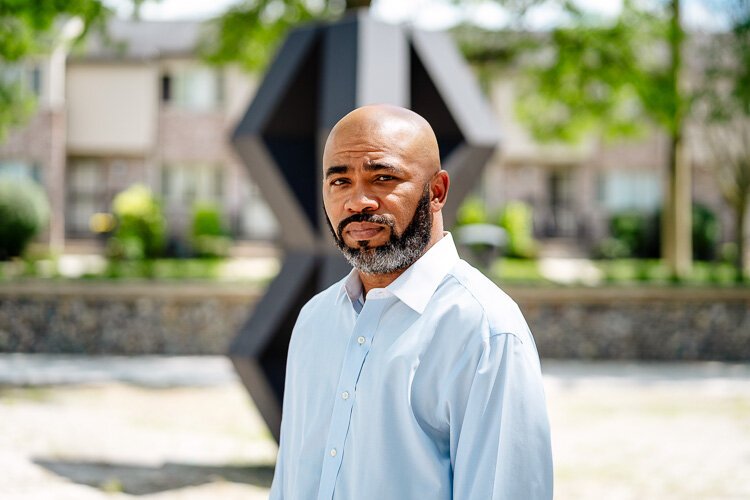
Bringing together Black leaders
The alliance isn’t the only Southeast Michigan area group working to help connect Black businesses with capital. Black Leaders Detroit (BLD) is an organization that’s dedicated to financially supporting social and community impact projects that are founded and led by Detroiters of African descent.
Launched in 2019, the organization raises money through a combination of individual donations and charitable contributions. BLD asks supporters to pledge a dollar or more a week to fund its efforts and also holds events like its Ride For Equity, a bike ride from Detroit to Mackinac that the group holds to raise funding as well as awareness about equity issues.
BLD then uses that money to issue a variety of grants and no-interest loans to qualifying Detroit-based businesses and nonprofits. As of May 25, 2022, BLD has issued $568,000 in funding to black-led businesses and organizations. CEO and founder Dwan Dandridge ultimately aspires to raise $52 million a year to fund Black-led businesses and organizations throughout Detroit.
“We collaborate and work with everybody that believes in fairness, inclusion, and equity,” he says. “We just don’t feel like the entrepreneurs deserve to wait any longer to see if the problem will be solved. So we think that we have a part of the solution.”
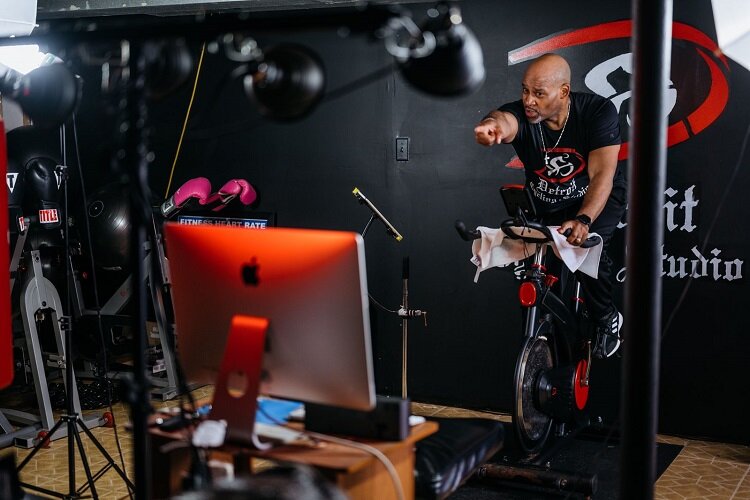
Elevating businesses
The Elevate Small Business Grant is another resource Black-owned businesses can potentially take advantage of to address capital needs. A special program offered through FHLBank Indianapolis, it provides grants of up to $20,000 to qualifying businesses working with member financial institutions in Michigan and Indiana. Funding from the grants can be used for purchasing property, improving existing property, purchasing machinery or other equipment, or paying for workforce development or training. Beyond that, grantees can also use up to $10,000 of the award to pay expenses like rent and salaries.
Tyronza Nesbitt and Nicole Nesbitt, founders of Detroit Cycling Studio, are well aware of the program’s benefits. The couple opened their indoor cycling studio in Detroit’s Live6 neighborhood back in 2015, so local residents would have a convenient place to exercise. After raising the funds to start the business out of their own savings, they attracted an enthusiastic clientele. Everything was going great for them until the pandemic hit. Suddenly they found operating out of a physical studio was no longer a viable business strategy.
Thankfully they applied for an Elevate grant through their bank, First Independence Bank, and were approved. With the funding they received, the Nesbitts were able to obtain new technology and software that allowed them to stream their classes via a personalized app while leasing out bikes to volunteers. Tyronza Nesbitt credits the Elevate grant for helping to save their business.
“Once we had to close those doors, we weren’t sure what we’d be able to do,” he says. “It allowed us to keep on going and offer cycling classes to a lot of our clients and people we hadn’t been acquainted with before during the pandemic from the comfort of our own home.”
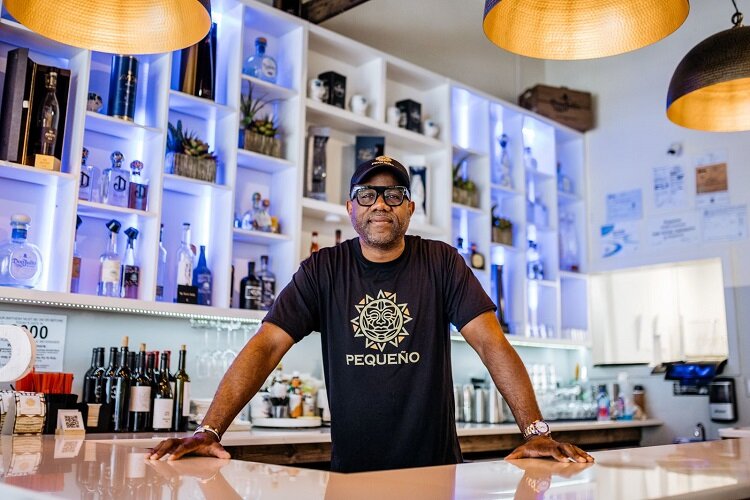
Finding the keys to success
In addition to running his own restaurants, Blackman has extensive experience advising food industry entrepreneurs. When approaching a lending institution or private investor, he recommends business owners to do their homework and develop a business plan.
“There’s a lot of folks that have a great idea, but when you’re talking to business people, you’ve got to understand finances,” he says. “You can have the best hamburger in the world, the best steak, but how does that equate to a dollar? And how does it become profitable?”
Access to capital is an issue Dandridge has thought a lot about as well. He thinks it’s crucial for business owners and organizations leaders to work on expanding their networks in an intentional way.
“One of the things that I see happening, especially in the nonprofit space is that we are connected to people that really understand our plight, but sometimes we’re not as connected to the people that can either write checks or connect us to the check writers,” he says.
As for Bowman, he suggests reaching out to the alliance or other Detroit organizations like the Build Institute that are dedicated to helping local businesses flourish. And like Dandridge, he believes knowing other business owners is an important element for opening doors to capital and commercial success.
“If you don’t have a network, build one,” says the MDBBA co-founder. Find folks that are within your industry that are going through similar issues and learn to soak up as much information as you can to help get your business either off the ground or back on track. Don’t feel like you have to do it alone!”
All photos by Steve Koss unless otherwise noted.
This is part of the Block by Block series, supported by FHLBank Indianapolis, that follows minority-driven development in Detroit.
